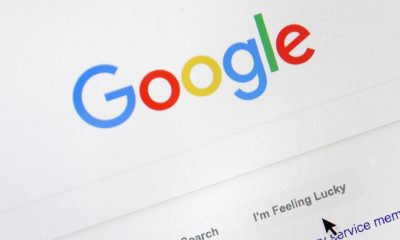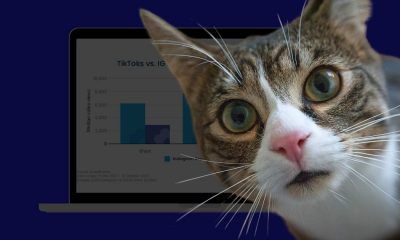SOCIAL MEDIA NEWS
LinkedIn change to learning tools registration upsets librarians
Boston Public Library reading room
Betty Wiley | Getty Images
Add librarians to the list of people angry at big tech in 2019.
Librarians across the country are vocalizing their frustration with LinkedIn over a new policy to its Lynda.com learning tools, which are being rebranded as LinkedIn Learning by the end of this year. The update requires library patrons using the learning programs to create a LinkedIn account using their full name. Library heads told CNBC they are angry because it’s a violation of their clients’ privacy and because the company has not held a serious dialogue with them.
Some librarians say they are ready to drop the product unless the policy changes, and they’re urging others to do the same.
The flap is the latest example of the perception gap between big tech companies and the people who use them, as lawmakers and regulators alike scrutinize Big Tech’s growing power. Unlike other social media companies, particularly Facebook, Microsoft-owned LinkedIn has largely escaped criticism about data privacy.
Company spokeswoman Andrea Roberts told CNBC that LinkedIn met with its largest library customers to validate the change before moving forward and that 67% of library customers have decided to renew their subscriptions. LinkedIn also confirmed that it had no plans to change the policy and pointed to a June announcement.
A ‘violation of everything public libraries stand for’
Lynda.com offers hundreds of online courses in areas like programming, business and design. LinkedIn acquired the company for $1.5 billion in 2015 and announced plans to rebrand it as LinkedIn Learning.
In late June, the company announced in a blog post that library patrons would need to sign up for a LinkedIn profile using their full name and email address in order to use it. Registration helps the company “to authenticate that users are real people and further protect our members,” wrote Mike Derezin, vice president of Learning Solutions at LinkedIn.
Since then, blogs have filled with comments from librarians berating the company’s rollout and calling it “disturbing.” Patrons’ full names would be searchable on Google and LinkedIn, librarians noted.
It is a “violation of everything public libraries stand for,” according to California State librarian Greg Lucas, who added that other state library heads reached out to him with their concerns.
“LinkedIn is strategically taking advantage of technology novices all the while fleecing money from limited library budgets,” Samantha Lee, the Intellectual Freedom Committee Chair of the Connecticut Library Association, wrote in a June blog post. She went on to call it a “gross overstep” adding that the company “presumes to supersede a library’s authority to authenticate patrons.”
Librarians said the company told them users can toggle the privacy settings after they sign up, but that’s not good enough for some of them.
“Representatives from libraries around the country have met with LinkedIn, asking that they respect the privacy rights of library users,” Lucas said. “To date, LinkedIn has refused to do so, stating that the requirement to create a LinkedIn profile is a security measure to prevent fraudulent access to LinkedIn’s content.”
Erin Berman, a division director at Alameda County Library and chair of the American Library Association’s Intellectual Freedom Committee’s Privacy Subcommittee, wrote: “When asked why a public social media profile is the only option for authenticating users, LinkedIn told libraries that the ‘library market’ wasn’t a significant enough revenue stream to warrant creation of a custom solution.”
“These new accounts will be subject to an artificial intelligence tool that determines if a person is a real user,” Berman added.
Wanda Kay Brown, president of the American Library Association, said she and the organization are “deeply concerned” adding it “violates the librarian’s ethical obligation to keep a person’s use of library resources confidential.”
“It’s the worst privacy policy I’ve ever seen and this is the first time I’ve seen a company so dismissive,” said Jill Bourne, San Jose Library director who has lived and worked in the Silicon Valley for several years. “Their [LinkedIn’s] response has been ‘We’re listening to librarians’ and every librarian I know, myself included, is livid because they’re so not listening.'”
Bourne said she’s particularly upset by the the lack of dialogue from LinkedIn because its headquarters is based in the same region as her library and its patrons.
“Our residents are just trying to get by — the cost of living is so high that kids are having trouble succeeding, especially in our lower-income communities,” she said. “There’s a lot of people in various levels of immigration status and there’s a huge fear right now of anybody feeling that they can be tracked through any system online.”
Lucas, Brown and Bourne all said they continue to hope LinkedIn will consider changing the policy, but, as of now, they have decided to discontinue use and urged others to do the same.
They said other companies are knocking at their doors.
“We have two or three companies saying, ‘Hey, we have an awesome online learning platform and we won’t make you do anything LinkedIn is making you do’,” Lucas said.
Bourne said she’s received alternatives as well, but acknowledged that LinkedIn’s programs have been “the best.”
LinkedIn’s Roberts responded to CNBC with the following statement:
We did meet with a number of our largest library customers to validate the change before deciding to move ahead. While some libraries have decided to not continue to work with us, so far 67% of our library customers in the US have decided to renew their subscriptions. We have also reached out to the president of the American Library Association and have not yet heard back. While this is small from a revenue perspective, it is very important for us to continue to work with libraries as their efforts and patrons are clearly aligned with our mission.
Having a profile authenticates the patron. This does not impact higher ed institutions as students will access via their standard authentication systems. Profiles help us to authenticate that users are real people and help to ensure we give our members a safe, trusted environment to interact with others and learn.
WATCH NOW: How Facebook makes money













